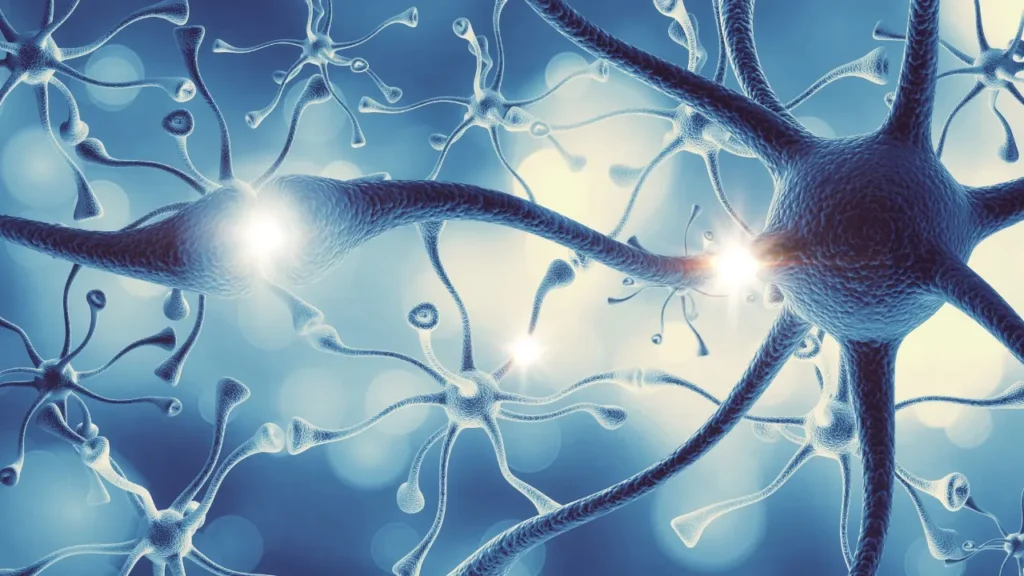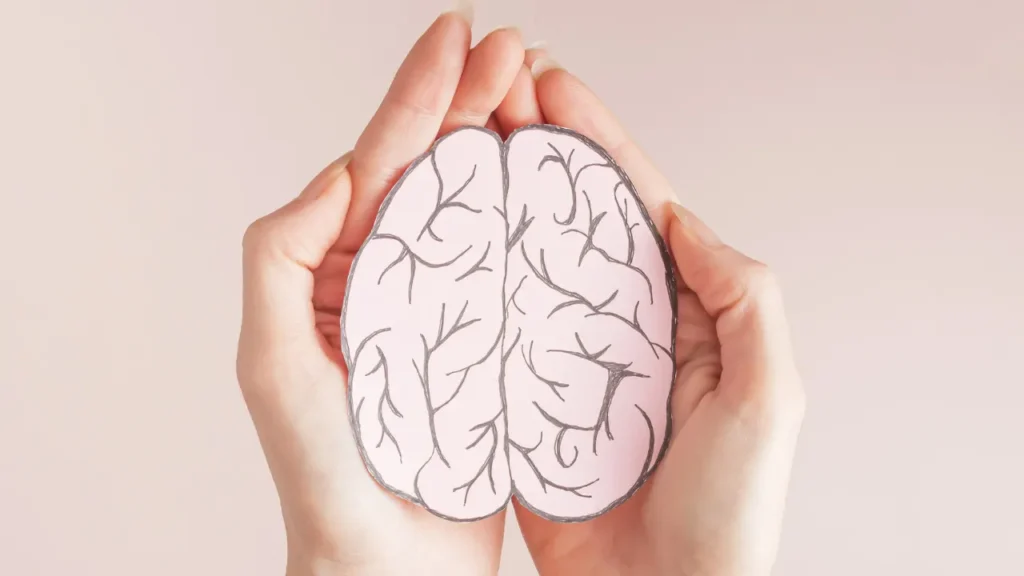The plant Salvia divinorum, which is indigenous to the cloud forests of the Sierra Mazateca in Oaxaca, Mexico, has attracted much interest in the fields of psychopharmacology, ethnobotany, and alternative medicine as a means of improving mental clarity and cognitive function. This article explores the many facets of Salvia divinorum, including its nature, health advantages, best dosages, adverse effects, possible interactions with other substances, and recommendations for responsible use. Moreover, it clarifies the physiological mechanics and chemical underpinnings of its impact on the human body and brain, especially its usage as a nootropic supplement meant to enhance alertness, attention, and cognitive function.
You May Also Like:
ONNIT Supplements Antarctic Krill Oil Reviewed: A Leading Memory Support Supplement
Salvia Divinorum: Benefits, Dosage, Side Effects, Drug Interactions, and Other Important Information is an original (NootropicsPlanet) article.
Nature of Salvia Divinorum
For millennia, Mazatec shamans have used salvia divinorum, a perennial herb of the Lamiaceae (mint) family, in sacred rites due to its hallucinogenic characteristics. Salvinorin A, a diterpenoid that stands out as the only known naturally occurring kappa-opioid receptor agonist, is the primary psychoactive ingredient in Salvia divinorum.
Health Benefits of Salvia Divinorum
While the primary interest in Salvia divinorum has historically centered around its psychoactive effects, emerging research and anecdotal evidence suggest potential health benefits for the brain, particularly in cognitive function, mood regulation, and neuroplasticity. However, it’s crucial to note that scientific exploration into these areas is still nascent, and much of the available information comes from preliminary studies or subjective reports. Here are some of the potential brain health benefits associated with Salvia divinorum:
Enhancement of Cognitive Functions
After taking Salvia divinorum, some users experience brief improvements in their cognitive abilities, such as sharper focus, increased awareness, and better memory recall. The specific way that salvinorin A interacts with the kappa-opioid receptor (KOR), which is involved in the modulation of perception and consciousness, is assumed to be the cause of these effects. Low doses may excite certain brain regions involved in cognition without producing the strong psychedelic effects observed at greater levels, according to theory.
Mood Regulation and Potential Antidepressant Effects
Research has linked the kappa-opioid system to mood regulation and stress response. According to certain studies, Salvinorin A, a KOR agonist, may be helpful as a fast-acting antidepressant, especially for patients who are resistant to therapy. The dopaminergic system, which regulates mood and emotional reactions, is thought to be involved in the mechanism. However, rigorous investigation of salvinorin A’s possible therapeutic applications is required because of the intense and frequently challenging experiences it induces.
Neuroplasticity and Neuroprotection
Recent data suggests that KOR activation may play a part in fostering neuroplasticity, the brain’s capacity to create and rearrange synaptic connections in response to novel experiences. Salvinorin A may be beneficial in cases where there is reduced synaptic connection or inflexible neuronal pathways because of its capacity to induce neuroplastic alterations through its impact on the KOR. Furthermore, some studies indicate that KOR agonists may have neuroprotective properties, protecting neurons from harm brought on by stress.
Potential in Treating Addiction
Interestingly, the modulation of the kappa-opioid system has been proposed as a strategy for treating substance addiction. KOR agonists like salvinorin A may alter the reward pathways in the brain, reducing the reinforcing effects of addictive substances. This approach is based on the theory that targeting the KOR system could offer a new avenue for addiction treatment, particularly for individuals struggling with dependence on substances that act on other receptor systems (e.g., opioids and alcohol).

Chemistry of Salvia Divinorum
Salvinorin A, a strong kappa-opioid receptor (KOR) agonist that sets Salvia divinorum apart from other psychoactive drugs is the primary agent responsible for the plant’s psychoactive effects. Salvinorin A belongs to the class of trans-neoclerodane diterpenoids, indicating that it has a unique structure compared to other naturally occurring psychotropic substances. Salvinorin A selectively acts on the KOR, unlike many other psychoactive chemicals that target the brain’s dopamine, serotonin, or other neurotransmitter systems.
The strength and selectivity of the chemistry between Salvia divinorum and salvinorin A are particularly noteworthy, as salvinorin A is one of the strongest naturally occurring hallucinogens known to science.
This compound does not conform to the classical structural categories of other psychedelics, which typically involve nitrogen atoms in their molecular structure (e.g., tryptamines and phenethylamines). Its uniqueness extends to its pharmacological profile, demonstrating a high affinity for the kappa-opioid receptor with little to no action on other opioid receptors, such as the mu and delta receptors.
Physiological Mechanism of Action
KORs are found in the brain regions involved in perception, mood regulation, and stress response, such as the cortex, hippocampus, and amygdala. Salvinorin A’s activation of KORs can cause dissociation, typified by changes in sensory perception, self-awareness, and external reality. It is believed that the brain’s dopaminergic and glutamatergic systems are modulated to produce this dissociation effect. However, the precise pathways and mechanisms underlying this process are still being investigated.
Beyond its hallucinogenic effects, salvinorin A’s physiological effects via KOR activation affect mood, perception, and stress response.
The unique interaction of salvinorin A with the KOR system offers insights into the complex neurochemistry of psychoactive substances and their potential therapeutic applications, albeit with profound caution due to the intense and often disorienting experiences it can induce.

Optimal Dosage of Salvia Divinorum
It can be difficult to determine the ideal dosage of Salvia divinorum because of the plant’s strong psychedelic effects and individual variations in reaction. How a substance is administered—chewing fresh leaves, ingesting salvinorin A that has been extracted, smoking dried leaves—affects the dosage considerably. Lower doses that don’t have potent psychoactive effects are preferable for improving cognition, though each person has a different threshold. To assess each person’s tolerance and response, beginning with small doses and gradually increasing the dosage is essential.
Side Effects of Salvia Divinorum
The adverse effects of salvia divinorum might vary, especially at greater doses, from minor (e.g., dizziness, bewilderment, laughter) to more powerful and confusing experiences. A sense of disassociation from the body or surroundings, abnormal visual and auditory experiences, difficulties with speech and motor coordination, and a detached mental state are a few examples. Because of the unknown long-term effects and the possibility of dependency, use should be done responsibly and with prudence.

Potential Substance Interactions with Salvia Divinorum
There is scant information on how Salvia divinorum interacts with other drugs, alcohol, prescription pharmaceuticals, and recreational substances. It is best to avoid using it concurrently with other psychoactive substances, especially ones that influence the central nervous system, due to its strong effects and distinct method of action. This will help to prevent unanticipated adverse reactions or potentiation of effects.
Best Responsible Uses of Salvia Divinorum
When using Salvia divinorum responsibly, there are a few essential things to keep in mind, especially if you’re hoping it will improve your cognitive function.
- Managing acute effects and preventing potential harm can be facilitated by providing a safe, regulated setting and having a sober sitter present while using the drug.
- Because it may exacerbate symptoms, those with a history of mental health conditions, especially psychosis or extreme anxiety, should refrain from using it.
- Legal status differs by jurisdiction; thus, knowing and abiding by local rules and ordinances regarding salvia divinorum is critical.
Salvia Divinorum:
Conclusion
The health benefits of salvia divinorum, while intriguing, remain largely unexplored and warrant further scientific investigation. While some studies suggest potential therapeutic applications, particularly in mental health disorders like depression and anxiety, the limited research available underscores the necessity for more rigorous studies to validate these claims.
Moreover, caution must be exercised due to the psychoactive nature of salvia divinorum, which can induce intense hallucinations and alter perceptions, posing risks to individuals’ mental and physical well-being, especially when consumed recreationally or without proper guidance. Therefore, while salvia divinorum holds promise as a potential therapeutic agent, its use should be carefully considered, adhering to ethical and safety guidelines, and further research is imperative to fully understand its health benefits and possible risks.

References:
- Salvinorin-A Induces Intense Dissociative Effects, Blocking External Sensory Perception and Modulating Interoception and Sense of Body Ownership in Humans. Retrieved from: https://www.ncbi.nlm.nih.gov/pmc/articles/PMC4675976/
- What Is Salvia Divinorum? Retrieved from: https://www.healthline.com/health/what-is-salvia
- Salvia Divinorum – Uses, Side Effects, and More. Retrieved from: https://www.webmd.com/vitamins/ai/ingredientmono-1043/salvia-divinorum
Important Note: The information contained in this article is for general informational purposes only, and should not be construed as health or medical advice, nor is it intended to diagnose, prevent, treat, or cure any disease or health condition. Before embarking on any diet, fitness regimen, or program of nutritional supplementation, it is advisable to consult your healthcare professional in order to determine its safety and probable efficacy in terms of your individual state of health.
Regarding Nutritional Supplements Or Other Non-Prescription Health Products: If any nutritional supplements or other non-prescription health products are mentioned in the foregoing article, any claims or statements made about them have not been evaluated by the U.S. Food and Drug Administration, and such nutritional supplements or other health products are not intended to diagnose, treat, cure, or prevent any disease.


